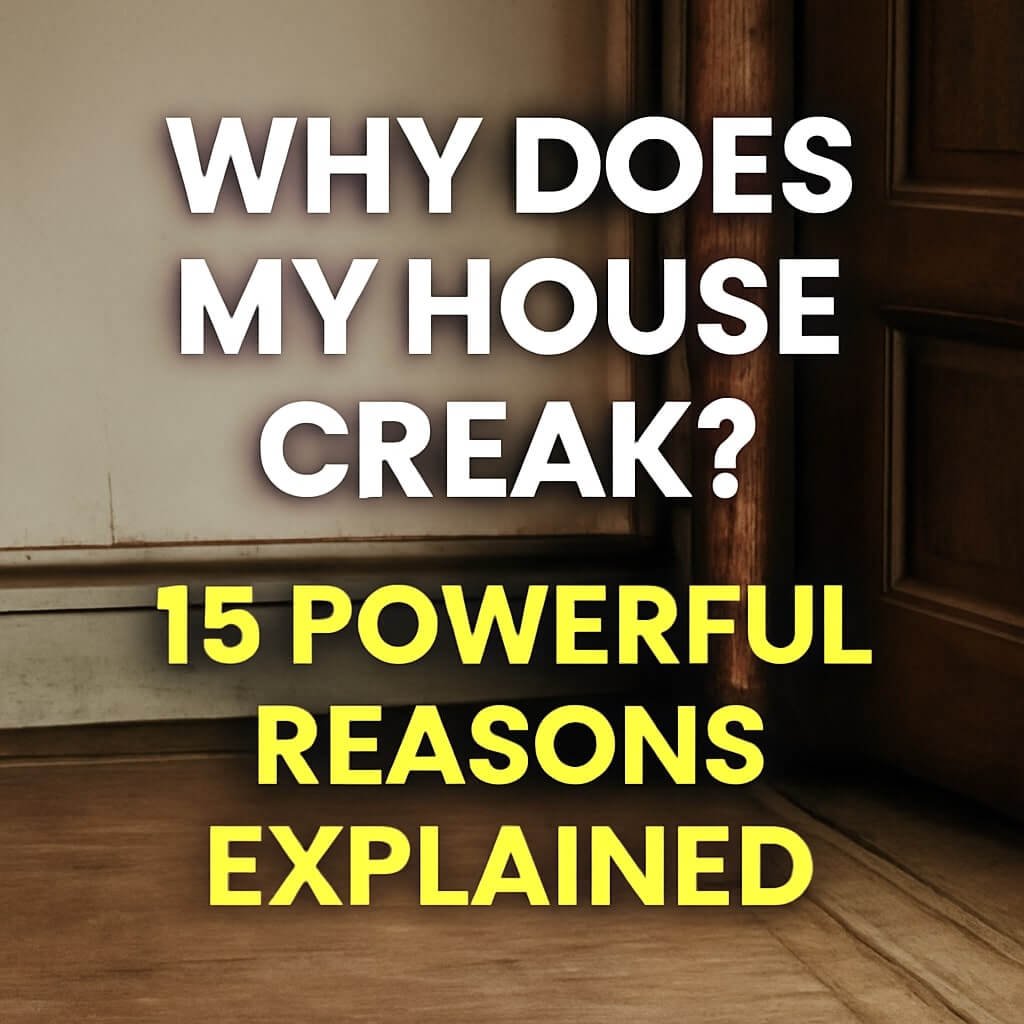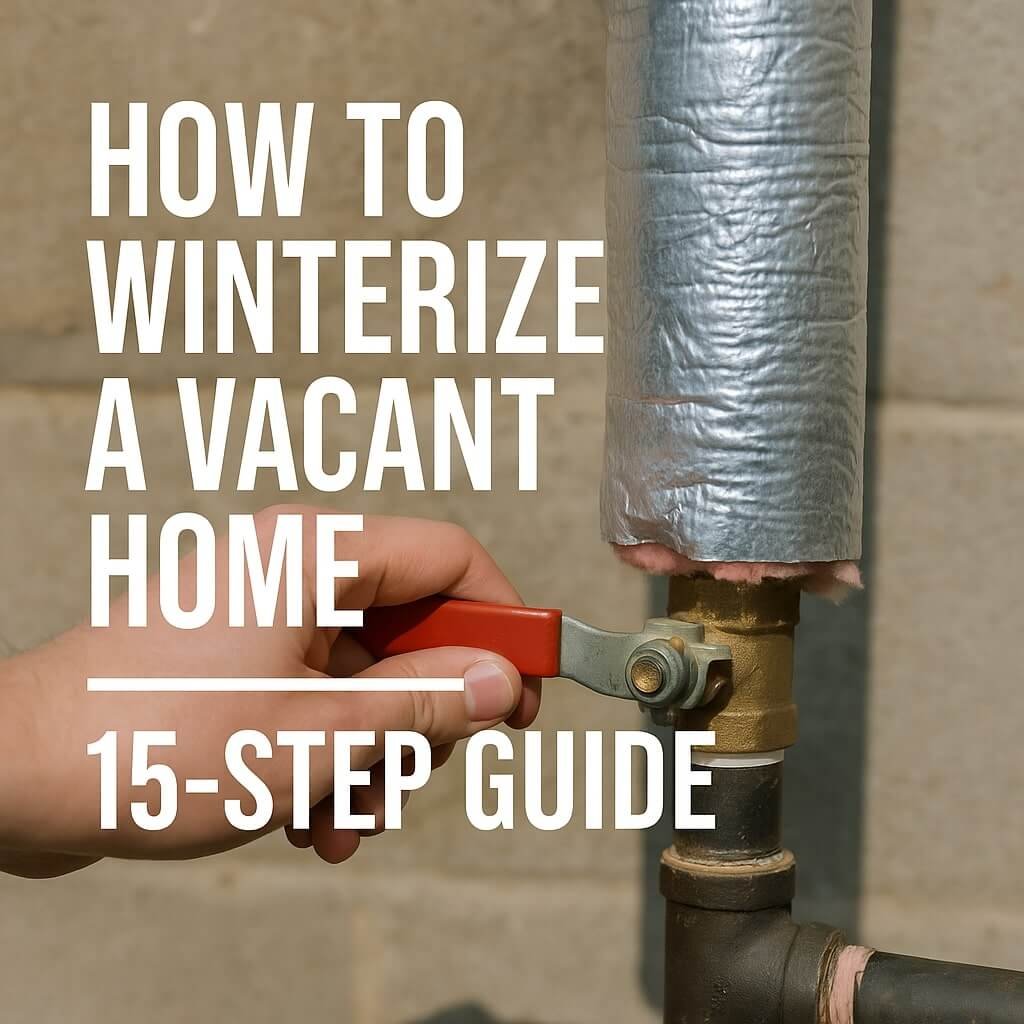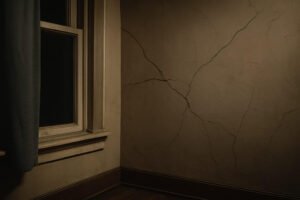When you hear those mysterious creaks and groans coming from your home, it can be unsettling. You might wonder, “Why does my house creak?” The answer is often rooted in natural and structural factors that affect the materials and design of your house. Understanding these causes can help you determine whether the noises are harmless or signs of something more serious.
In this comprehensive guide, we’ll explore 15 powerful reasons why your house creaks, dive into the science behind these sounds, and offer practical solutions to keep your home quiet and comfortable.
Understanding House Creaking: What Causes Those Noises?
House creaking is a common phenomenon, especially in older homes. These sounds happen when the materials making up your house shift, rub, or contract against each other. Think of it like joints in your body—when you move, you sometimes hear cracking or popping sounds. Similarly, your home “moves” in subtle ways, producing those familiar creaks.
From wooden floorboards to settling foundations, many elements in a home can contribute to these noises. Identifying what causes your house to creak is the first step to knowing how to address it.
The Science Behind House Creaks
Creaking is primarily caused by mechanical friction and material movement. Here’s a closer look at the most common scientific causes:
Wood Expansion and Contraction
Wood is a natural material that reacts to changes in temperature and humidity by expanding and contracting. During dry, cold months, wooden floorboards and beams shrink, creating gaps and friction points that lead to creaking. Conversely, in humid conditions, wood absorbs moisture and swells, which can also create pressure and noise.
Structural Settling and Foundation Movement
After construction, houses naturally settle over time. This settling can cause minor shifts in the foundation and framing. As different parts of the house move against each other, friction causes creaking sounds. This is usually a slow, gradual process, but can be more noticeable during certain seasons or weather conditions.
Humidity and Moisture Effects
Humidity affects many building materials, especially wood. Moisture causes wood to swell and warp, which sometimes results in squeaks and creaks as boards rub or joints loosen. Similarly, drywall and plaster can contract or crack, adding to the symphony of house noises.
Common Locations Where Houses Creak the Most
Knowing where creaks typically happen can help pinpoint their cause.
Floors and Floorboards
Floors, especially those made of wood or laminate, are among the most common culprits. Walking on uneven or loose floorboards can cause them to rub against the subfloor or nails, producing creaks. Older homes often have more pronounced floor squeaks due to wear and material aging.
Staircases and Railings
Staircases experience frequent movement and stress, which makes creaking a usual complaint. Loose or shifting stair treads and handrails can cause noticeable squeaks and groans.
Doors and Windows
Frames and hinges can contract or expand due to temperature and humidity, causing doors and windows to creak when opened or closed. Sometimes, worn or dry hinges are to blame, and a simple lubrication fix can solve the issue.
How to Diagnose the Source of House Creaks
Locating the source of creaks is essential before attempting any repair. Here’s a simple step-by-step process:
- Observe When Noises Occur: Are the creaks constant, or do they happen only when walking, opening doors, or at night?
- Map the Noise Locations: Walk around the house and note where the creaks are loudest.
- Inspect for Loose Boards or Fixtures: Check floors, stairs, doors, and windows for looseness or gaps.
- Check for Moisture or Weather Effects: Consider if recent weather changes coincide with increased creaking.
- Use Light and Sound Tools: Flashlights and tapping can help identify hollow or weak spots causing noise.
When Should You Be Concerned About Creaking?
Most creaks are harmless, but some signs mean you should investigate further or call a professional:
- Creaking accompanied by cracks in walls or ceilings
- Suddenly, loud popping noises
- Doors or windows that stick or fail to close properly
- Noticeable shifts in the flooring or foundation
- Persistent creaking despite seasonal changes
If you notice these symptoms, it could signal structural issues needing expert evaluation.
Effective Solutions to Fix House Creaking
DIY Fixes for Common Creaks
Many creaking problems can be addressed with simple home fixes:
- Lubricate Hinges: Use WD-40 or silicone spray to quiet door and window squeaks.
- Tighten Loose Boards: Screw or nail floorboards or stairs back into place.
- Add Shims: Insert small wooden shims between loose boards and joists to stabilise them.
- Apply Talcum Powder: Sprinkle or graphite powder between floorboards to reduce friction.
When to Call a Professional
For major foundation movement or persistent structural noises, consult a structural engineer or experienced contractor. Professional repairs may involve underpinning foundations, replacing damaged joists, or reinforcing beams.
Preventative Tips to Minimise House Creaks
Regular maintenance can reduce the frequency and severity of creaks:
- Maintain consistent indoor humidity levels using humidifiers or dehumidifiers
- Inspect and tighten fixtures annually
- Keep gutters and drainage systems clear to avoid foundation water damage
- Use rugs or carpets to reduce floorboard friction in high-traffic areas
- Schedule periodic structural inspections, especially for older homes
Frequently Asked Questions (FAQs)
Why does my house creak more in winter?
Cold weather causes wood to contract and dry out, making floorboards and frames shrink and rub against each other, leading to more creaking.
Can humidity control stop my house from creaking?
Maintaining stable humidity helps wood stay balanced, reducing expansion and contraction that cause creaks.
Is the house creaking a sign of serious damage?
Not usually, but a professional should check persistent or worsening creaks with visible cracks or structural issues.
How can I silence creaky stairs?
Tightening screws, adding wood glue, or applying lubricants to stair joints often works well.
Are new houses less likely to creak?
New houses can still creak due to settling and material movement, but generally have fewer issues if built with quality materials.
When should I call a structural engineer?
Professional assessment is necessary if creaking is accompanied by foundation cracks, doors/windows that won’t close, or noticeable shifts in the house.
Conclusion: Enjoying a Quiet and Comfortable Home
Creaking is a natural part of any home’s life cycle. By understanding why your house creaks and knowing when to take action, you can maintain a safer, quieter living space. With regular maintenance and timely fixes, those annoying noises can become a thing of the past, letting you fully enjoy the comfort of your home.













